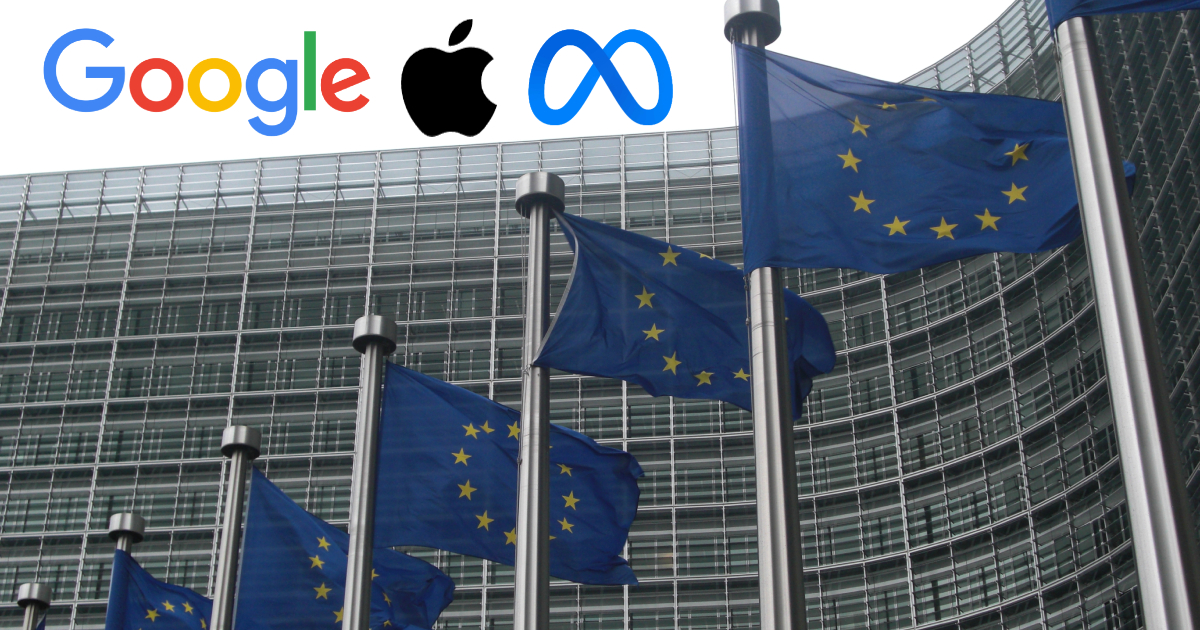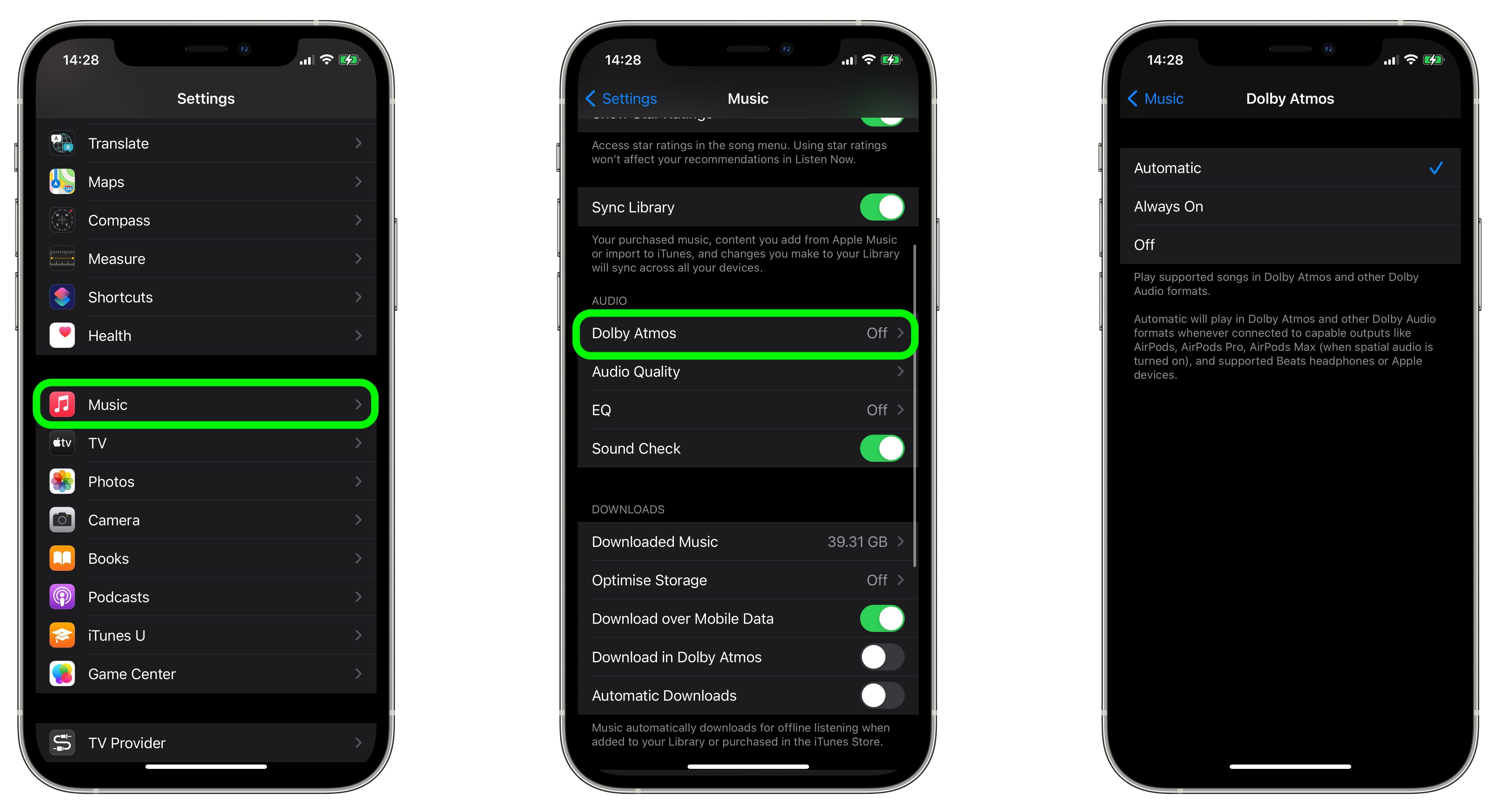In a significant move against Big Tech regulations, the EU has levied fines of €500 million on Apple and €200 million on Meta for violations of the Digital Markets Act (DMA). Following a comprehensive investigation, the European Commission found that Apple’s App Store steering rules and Meta’s controversial ‘pay or consent’ advertising model failed to comply with the new regulatory framework. Although Apple recently allowed some alternative app distribution on iOS, the Commission determined that they still restrict developers from directing users to cheaper options outside their confines. Meta, on the other hand, was penalized for not providing users the choice to opt-out of targeted ads without a fee, a cornerstone violation of the DMA. As these historic fines highlight the EU’s commitment to enforcing digital market fairness, they also signal potential repercussions for other tech giants navigating similar compliance challenges.
The European Union has taken decisive action against two of the largest players in the tech industry, Apple and Meta, imposing hefty fines as part of its efforts to enforce the Digital Markets Act. These penalties reflect the EU’s commitment to regulating unfair practices in the digital marketplace, particularly within the realms of app distribution and advertising strategies. While Apple faced consequences for its stringent App Store policies that limit competition, Meta was called out for its unwillingness to offer users alternatives to its targeted advertising practices. The implications of these rulings could have far-reaching effects on how major technology companies conduct their business in Europe moving forward. As the EU continues to assert itself against non-compliance, it sets a precedent that could reshape the digital landscape globally.
EU Fines Apple and Meta for Violating Digital Markets Act
The European Commission recently imposed significant fines on Apple and Meta, marking a pivotal moment in the enforcement of the Digital Markets Act (DMA). Apple faced a hefty €500 million fine, while Meta was fined €200 million, both for failing to comply with the regulations set forth in the DMA. Apple’s contraventions stem from its restrictive App Store steering rules, which prevent developers from directing customers to alternative app distribution channels. Similarly, Meta’s violation relates to its controversial ‘pay or consent’ advertising model, which forces users to choose between paying for an ad-free experience or consenting to targeted ads against their will.
These unprecedented fines reflect the EU’s commitment to curbing the monopolistic behaviors of Big Tech companies. In the case of Apple, the EU Commission highlighted that despite allowing some modifications to its App Store policies, the company still does not fully comply with the DMA’s requirement to enable developers to promote cheaper offers available outside the platform. For Meta, the fines signal a crucial step towards addressing the power imbalance between users and advertising giants, promoting a more user-centric approach to online services.
Implications of the Digital Markets Act on Big Tech
The Digital Markets Act aims to establish a fairer digital ecosystem by imposing stricter regulations on major players like Apple and Meta. The Act targets practices that hinder competition and stifle innovation within the digital economy. As these fines demonstrate, the EU Commission is serious about holding these companies accountable for their business models that often prioritize profit over customer choice and fair competition. The implications of these penalties extend beyond financial consequences; they set a precedent for how digital platforms must operate within the EU.
As regulators continue to scrutinize the advertising models and app distribution practices of these tech giants, we may see an evolution in how products and services are offered to consumers. For example, Apple might have to rethink its App Store policies, while Meta could be forced to adapt its advertising strategies to comply with user consent regulations, thereby enhancing the user experience. These adjustments not only aim to diminish monopolistic practices but also empower consumers with more choices, thereby fostering a healthier digital market.
Apple’s Response to EU Fine and Future Compliance
In light of the EU’s ruling, Apple has announced plans to appeal the decision, arguing that the imposed fines could jeopardize the privacy and security of its users. Apple’s stance reflects its ongoing commitment to maintaining a controlled ecosystem for its products, which it claims ultimately benefits users. However, the EU Commission has made it clear that compliance with the Digital Markets Act is non-negotiable, and Apple must adapt its practices to meet regulatory standards. The outcome of this appeal could significantly impact how Apple operates within the EU.
Moreover, Apple’s recent modifications, such as improvements to its browser choice screen, signal a willingness to make adjustments in response to regulatory pressure. While the company seeks to uphold its business model, the necessity to comply with the DMA could result in transformative changes to Apple’s App Store policies. This case not only highlights the tension between Big Tech and regulatory bodies but also underscores the importance of transparency and competition in digital marketplaces.
Meta’s Advertising Model Under Fire
Meta’s advertising model, known for its ‘Consent or Pay’ approach, has drawn significant criticism from the EU, leading to the recent €200 million fine. Critics argue that this model exploits consumer data for profit, leaving users with limited choices. By enforcing compliance with the Digital Markets Act, the EU Commission aims to reshape how Meta interacts with its users, providing them with more autonomy over their data and advertising preferences. This scrutiny represents growing concern about the ethical implications of targeted advertising in the digital age.
As Meta seeks to appeal the fine, the company must navigate the complexities of regulatory expectations while maintaining its advertising revenue. The EU’s push for transparency could compel Meta to rethink its ad strategies, offering users more control without compromising the effectiveness of its advertising model. This transitional period may prompt Meta to innovate, leading to new revenue models that align with regulatory standards while preserving the user experience on platforms like Facebook and Instagram.
Future of Big Tech Regulations in the EU
The enforcement actions taken by the EU Commission against Apple and Meta set a significant precedent for future Big Tech regulations. As regulators continue to crack down on non-compliance with the Digital Markets Act, other tech giants like Google are also under scrutiny for similar issues regarding steering policies and self-preferencing. This ongoing evaluation of large digital platforms indicates that the EU is serious about leveling the playing field and ensuring that consumer rights are protected in the digital space, potentially leading to more fines and stricter regulations.
Moreover, as the landscape of digital regulation evolves, we may witness a paradigm shift in how technology companies operate globally. Compliance with EU regulations could influence business practices not just within Europe but worldwide, forcing companies to adapt to varying regulatory requirements. The continued push for transparency and competition in the tech sector could foster a more equitable digital marketplace, ultimately benefiting consumers through better choices and services.
The Role of the EU Commission in Regulating Tech Giants
The European Commission plays a crucial role in regulating tech giants and ensuring compliance with the Digital Markets Act. By imposing fines on major corporations like Apple and Meta, the EU Commission sends a clear message regarding the importance of fair competition and consumer rights in the digital marketplace. These regulatory actions are founded on extensive investigations and dialogues with the companies, demonstrating a commitment to upholding market integrity and responding to violations effectively.
Moving forward, the EU Commission will likely continue its rigorous oversight of Big Tech companies, potentially expanding its focus to other platforms as well. As the Commission identifies further breaches, it will impose additional penalties and require companies to adopt compliant practices. This proactive regulatory approach aims to create a balanced digital ecosystem, reducing the influence of monopolistic behaviors and fostering competition that benefits consumers and developers alike.
Impact of Non-Compliance on Tech Companies
The penalties imposed on Apple and Meta underscore the potential consequences that tech companies face for non-compliance with the Digital Markets Act. Financial fines, such as the €500 million levied against Apple, not only impact a company’s bottom line but can also influence investor confidence and public perception. For major players in the tech industry, adherence to regulations has become critical to maintaining their market position and ensuring sustained growth.
Furthermore, the reputational damage caused by these non-compliance decisions can motivate companies to make swift operational changes. Apple and Meta’s appeals reflect a recognition of the importance of compliance, prompting them to reassess their business practices to align with regulatory standards. In an era where consumer sensitivity to data privacy and security is at an all-time high, tech companies must prioritize accountability to preserve their brand integrity and trust among users.
Consumer Reactions to Big Tech Fines
Public response to the fines against Apple and Meta reveals widespread support for regulatory actions that aim to promote fairness in the digital marketplace. Consumers are increasingly aware of the implications of Big Tech’s business models, particularly when it comes to data privacy and user choice. As the EU Commission takes a firm stance against companies perceived as monopolistic, consumers express hope for a landscape where their rights are prioritized.
This growing awareness among consumers may drive companies to adopt more user-friendly policies. As tech giants reevaluate their business models in light of regulatory scrutiny, they may begin offering better options for data management and advertising. Ultimately, the continued enforcement of the Digital Markets Act serves not only to penalize non-compliance but also to empower consumers, fostering an environment where their voices are heard and their preferences respected.
Looking Ahead: Ongoing Investigations and Potential Changes
The recent fines against Apple and Meta signal the beginning of a new era of regulatory scrutiny for Big Tech, with ongoing investigations suggesting that other companies may soon face similar consequences. As the EU Commission strives to enforce the Digital Markets Act, it will continue evaluating compliance among various platforms, including emerging concerns regarding Google’s practices with Google Play and its search engine. This proactive approach by regulators indicates a long-term commitment to dismantling monopolistic behaviors in the tech industry.
Looking forward, companies will need to remain vigilant and responsive to regulatory changes to avoid penalties and adapt to evolving market expectations. The focus on compliance may encourage innovations that prioritize consumer choice and transparency, ultimately reshaping the relationship between tech companies and users. As the dialogue around collaboration and regulation continues, it becomes clear that the future of digital markets hinges on a balance between business interests and the rights of consumers.
Frequently Asked Questions
What are the EU fines imposed on Apple and Meta under the Digital Markets Act?
The European Commission has fined Apple €500 million and Meta €200 million for non-compliance with the Digital Markets Act (DMA). Apple was penalized for its App Store steering rules, while Meta was fined for its ‘pay or consent’ advertising model.
How did Apple violate the Digital Markets Act leading to EU fines?
Apple violated the DMA by maintaining steering restrictions in its App Store, which prevented apps from directing users to external stores. The EU Commission found this behavior non-compliant despite Apple’s previous adjustments to allow alternative app distribution in the EU.
What specific issues were raised regarding Meta’s advertising model that led to a fine?
Meta’s advertising model, which required users to choose between consent for targeted advertising or paying for an ad-free experience, was deemed non-compliant with the Digital Markets Act, resulting in a €200 million fine from the EU Commission.
What steps is Apple taking in response to the EU fine related to the Digital Markets Act?
Apple is appealing the EU Commission’s decision, claiming that the ruling compromises user privacy and security. Additionally, the company is ordered to eliminate certain technical and commercial restrictions that prevent apps from steering users to cheaper offers.
What recent changes has Meta made to comply with the Digital Markets Act after its fine?
Following the fine, Meta agreed to offer EU users an option to use Facebook and Instagram for free with fewer personalized ads instead of requiring payment for an ad-free experience. The EU is assessing the feasibility of this new model.
Why was the EU’s enforcement of the Digital Markets Act significant for Big Tech companies like Apple and Meta?
The fines against Apple and Meta mark the EU’s first enforcement actions under the Digital Markets Act, highlighting the EU Commission’s commitment to regulating Big Tech companies and ensuring compliance with new digital market rules.
How might these EU fines influence future regulations on Big Tech companies?
The EU fines may set a precedent for stricter enforcement of the Digital Markets Act against other Big Tech companies, indicating that the EU is serious about regulating market competition and preventing anti-competitive practices.
What has been the response of Apple and Meta to their respective fines under the DMA?
Both Apple and Meta announced plans to appeal their fines, criticizing the EU’s requirements. Apple argues that the ruling negatively impacts user privacy while Meta claims it imposes large costs and alters its business model significantly.
What are the broader implications of the EU Commission’s decisions for the tech industry?
The fines against Apple and Meta signal a tightening regulatory landscape for tech companies, encouraging a shift toward more compliant business practices in alignment with the Digital Markets Act and potentially more scrutiny on self-preferencing and market dominance.
| Company | Fine Imposed | Reason for Fine | Compliance Actions | Company Response |
|---|---|---|---|---|
| Apple | €500 million | Violation of the Digital Markets Act (DMA) regarding app store steering rules | Ordered to remove technical restrictions on steering and improve compliance | Apple plans to appeal the decision, claiming it harms privacy and technology. |
Summary
The recent EU fines against Apple and Meta serve as a significant enforcement of the Digital Markets Act (DMA), highlighting the EU’s commitment to regulating Big Tech companies. The fines of €500 million for Apple and €200 million for Meta were levied due to their non-compliance with the DMA regulations, emphasizing the importance of fair competition and consumer rights in the digital marketplace. Both companies have expressed intentions to appeal the decisions, indicating ongoing tensions between tech giants and regulatory bodies.



